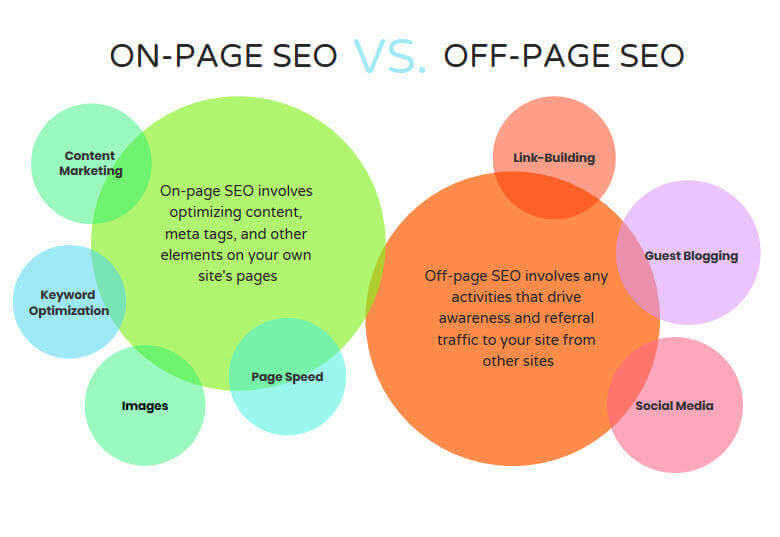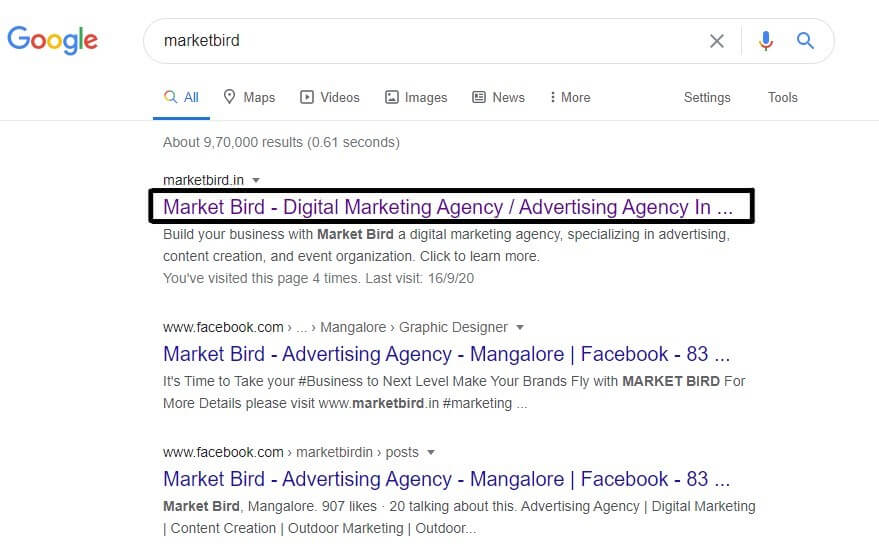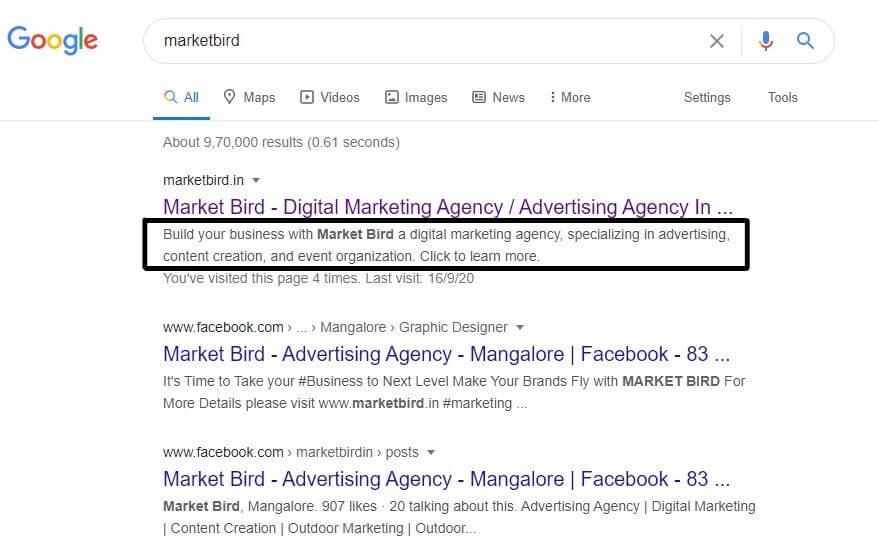Introduction to Seo
5 Brilliant Techniques to Improve your On-Page SEO
By Shaivin Shettigar & Shailesh Aithal
- 16th October 2020
Introduction to SEO
Every website you build should benefit your user and any optimization should strive toward making the user experience better. Everyone is aware of various web search engines like Google, Yahoo etc… In short, web search engine is a software designed to carry out internet search. This means looking for results in the World Wide Web in a systematic way for particular information. The search results are generally referred as search engine results page which may include links of various web pages, images, videos, infographics, articles, research papers, and other types of files. Appearance of these websites, images, videos, infographics on the top of results page needs some optimization. This blog gives you an introduction to SEO and covers the basic essentials of on-page optimization.
What is SEO ?
SEO refers to Search Engine Optimization (SEO) which is a process carried out to improve the visibility of the website on a search engine’s results page. Increasing the SEO score will put the company’s website at the top of the search results page thereby increasing the number of organic visitors to the website from search engines. This can be done by improving the quality and quantity of the website by understanding what people are searching for online, the words they are using, the answers they are looking for and type of content they require. If we understand their requirements, then it’s easy to connect to people those who are searching online, for solutions you offer. SEO is comprised of two parts.
- On-Page Optimization
- Off-Page Optimization

Why is SEO important ?
SEO is a vital party of digital marketing. People conduct trillions of searches every year to find solutions for their questions. SEO plays a very important role in these situations by making your website visible and rank higher in the search results page. Optimizing your website will help deliver better information to search engines so that your content can be properly displayed in search results page. While paid advertising, social media, and other online platforms can generate traffic to websites, the majority of online traffic is driven by search engines. If your content has keywords that deserves to rank high, then your traffic can increase over time, thus increasing possible monetisation.
On page Optimizaton
SEO is a vital party of digital marketing. People conduct trillions of searches every year to find solutions for their questions. SEO plays a very important role in these situations by making your website visible and rank higher in the search results page. Optimizing your website will help deliver better information to search engines so that your content can be properly displayed in search results page. While paid advertising, social media, and other online platforms can generate traffic to websites, the majority of online traffic is driven by search engines. If your content has keywords that deserves to rank high, then your traffic can increase over time, thus increasing possible monetisation.
Keywords in SEO
To rank high in SERP we need to have a strong keyword. Keyword research should be carried out to understand what term or word people are searching for on the internet and volume of certain keywords words used. Keywords can include things like your products, services, or other topics, your website addresses. By entering those keywords into a keyword research tool, average monthly search volume and similar keywords can be found. Once you enter in your keywords into a keyword research tool, you will begin to discover other keywords, common questions, and topics for your content that you might have otherwise missed. Choosing the right keyword can help attract users to your website as it helps in getting good SEO score thereby raking your website higher in the SERP. Try to avoid using competitive keywords that are desirable but often too vague and don’t convert as well as more specific keywords (long-tail keywords)
Links in SEO
It’s not enough only if you learn keyword and know about what people are searching to optimise your content. Links form the structural bond of a website as it can connect between two different sites or between the same site. There are two types of links namely internal and external links. Internal link are hyperlinks that point which connects the internal pages of the same domain. A high amount of internal links strengthens the bond between the same domain and provide signal to Google that the page is important. External links are hyperlinks that point that connect one website to the other. Earning links from authoritative websites helps strengthen both the domain and lets Google understand the importance of both the domains. External links have more weightage in SEO and they are hard to obtain.
Readability
Originality of content is one more important factor that affects SEO scores. Contents written should not be genuine and not plagiarised. Written content should be readable i.e. the font size should be a minimum of 16px as Google considers this font size as readable. The content should be divided into main headings and subheadings. Also, the keyword chosen should be included in the content. Including videos and images also helps in increasing readability. Images and videos related to the content enhance the user experience while using the site.
Optimization of Images
Images should be compressed and should be in a format suitable for web pages such as .webp or .jpg or .png. It is recommended you resize and compress your images using webapps like tinypng.com or if you are using wordpress, plugins like Smush.
Title and Meta Description
Title tags are titles displayed as a clickable headline on the results page. It is the head section of each webpage and it will have bigger font size. A good title can attract users to click on your website. Title tags are important because it will let the reader understand what is present in the website just by looking at the title. Title tags should be between 50-60 characters in length and must contain the keyword.


Off-Page Optimization
Off-Page optimization refers to steps taken to optimize the website outside the website. This involves writing guests posts, getting listed on directories and classifieds, building backlinks etc… We will be covering this more in a future article.
Tips to keep your website active
- Write a BLOG
Engineers at Google recommend this content and link building strategy is so popular and valuable. Blogs have the unique ability to contribute fresh material on a consistent basis, generate conversations across the web and earn listings as well as links from other blogs.
- Content Updation
Update the content on your website on a regular basis. It could be reviews given by your clients, new projects you have undertaken, new products in your shop, activities conducted in your institution etc…
If you are looking for someone to build a website for you or want to try out SEO for your already existing website, please contact us on hello@marketbird.in or +91-7204592231.
0 Comments